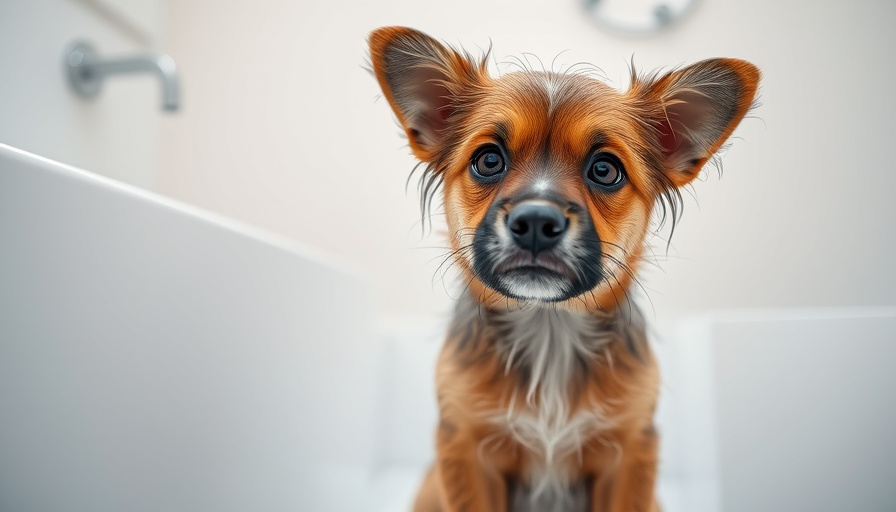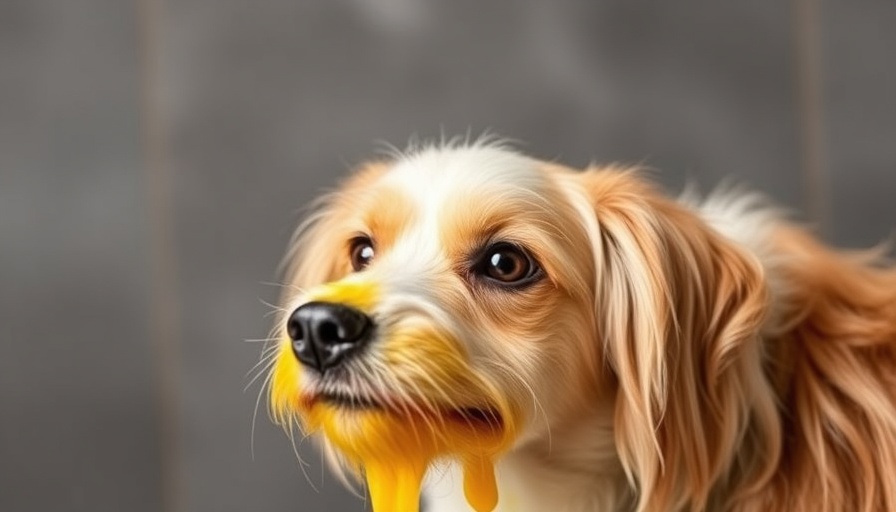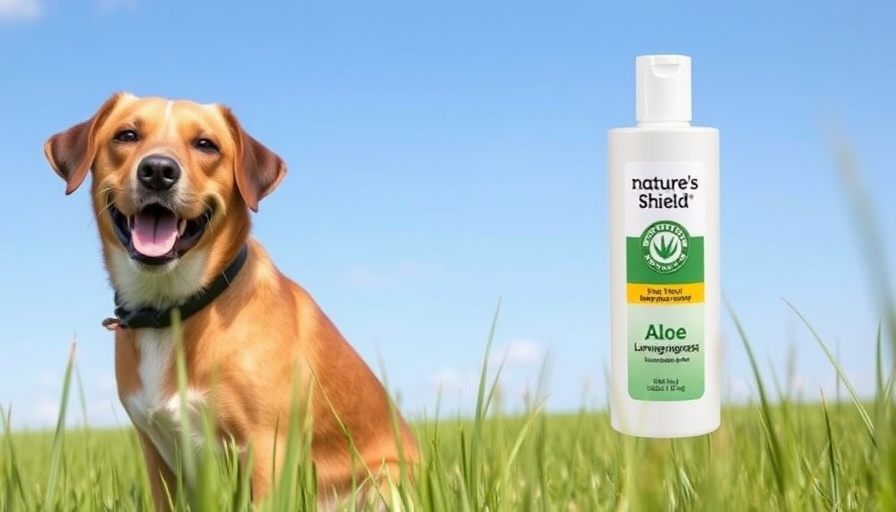
Finding Alternatives: What Pet Owners Should Know
As beloved family members, our dogs deserve the best care, especially when it comes to grooming. But what happens when you find yourself without dog shampoo? Luckily, some alternatives exist—though they come with a few important caveats. Understanding the differences between human and dog skin is essential before plunging into the bottle cabinet.
Understanding Dog Skin: A Vital Distinction
Dog skin is fundamentally different from human skin. As explained by Dr. Mitzi Clark, a veterinarian from Cornell University, the epidermis of a dog's skin is thinner, making it more vulnerable to irritation. Pet owners might not realize that ingredients in a human shampoo can permeate a dog's system faster, leading to potential skin issues.
Safe Products: What Can You Use?
While you should avoid making a habit of it, several household items can be used for an emergency wash. Here are some commonly accepted alternatives:
- Baby Shampoo: Gentle and formulated for sensitive skin, baby shampoo can be a suitable temporary alternative as long as it's free of fragrances and harsh chemicals.
- Oatmeal: Ground oatmeal can be soothing for irritated skin and help reduce itching when mixed with water to form a paste. Simply rinse well to avoid residue.
- Vinegar and Water: A mixture of vinegar and water can help neutralize odors. However, use it sparingly, as excessive vinegar can irritate dry skin.
Consult Experts Before You Decide
Before resorting to these alternatives, consider consulting with your vet. Every dog is unique, and what works for one might not be suitable for another. Regular grooming not only maintains cleanliness but is also critical for skin health. By keeping nails trimmed and coats free of matting, dog owners can help prevent further skin issues.
Common Misconceptions: What to Avoid
It's essential to address some common myths around dog grooming products:
- Myth: Human shampoo is always okay to use.
- Fact: Most human shampoos are formulated with pH levels that can disrupt a dog's skin balance, leading to irritation.
- Myth: All dish soaps are safe.
- Fact: While some owners suggest using Dawn dish soap, it's not advisable as a regular option due to its potential to strip natural oils from the skin.
The Right Time for a Professional Wash
If your pet is exceptionally dirty or has a skin condition, taking them to a professional groomer or vet may be the best approach. These experts have access to products specifically designed for canine skin, ensuring a safe clean without the risk of irritation or harm.
Creating a Bathing Routine: Best Practices for Healthy Skin
Once you have your emergency solutions at hand, consider establishing a bathing routine for your furry friend. Regular washing with appropriate products promotes skin health and reduces odors. Try to aim for once a month, unless your dog is particularly active or has rolled in something unpleasant!
Local Resources to Consider
Many communities organize events that aid dog owners in learning about grooming practices. Local shelters or pet stores often hosts clinic days where you can get advice from professionals and learn how to care for your dog better. By participating, not only will your dog enjoy a day out, but you'll also get the tools and knowledge to keep them happy and healthy.
Remember, our dogs rely on us to provide them with safe and loving care. Stay informed, and don’t hesitate to ask your veterinarian about the best bathing practices and products for your furry friend.
Now that you've explored what's safe for your dog, consider reaching out to your friends and fellow dog owners! Share these insights and help others ensure their pets remain healthy and happy, in and out of the bath.
 Add Row
Add Row  Add
Add 




Write A Comment